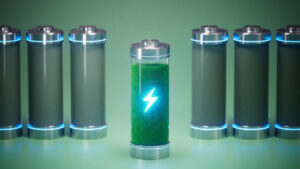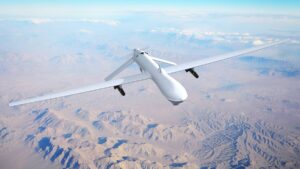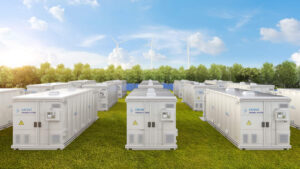ASX Tech Stocks: Li-S Energy up 220% on IPO to commercialise lithium-sulphur battery tech

Pic: gorodenkoff / iStock / Getty Images Plus via Getty Images
Li-S Energy (ASX:LIS) commenced trading on the ASX today after raising $34 million via an IPO of 40 million shares at $0.85 – and the company is already up a whopping 221%, with shares currently trading at $2.70.
The company is focused on making lithium-sulphur (Li-S) batteries commercially viable by extending their cycle life and creating a genuine alternative to mature lithium-ion (Li-ion) battery technology.
Li-S Energy IPO
Li-S batteries have a theoretical maximum energy density more than 5x that of lithium-ion, which could substantially extend electric vehicle (EV) ranges, drone flight times and device battery life.
CEO Dr Lee Finniear said the success of the IPO is “testament to the market’s understanding of, and enthusiasm for, the breakthroughs we have made to render possible the commercial viability of lithium-sulphur batteries”.
“Ours is a genuine Australian technology success story with global application and the realistic potential to allow EVs to drive further, drones to fly longer and mobile devices to last for days instead of hours,” he said.

Plans to license IP
Rather than become a large-scale battery manufacturer, the company intends to license its IP and sell boron nitride nanotubes (BNNTs) and Li-Nanomesh materials to battery manufacturers enabling them to mass produce Li-S energy batteries.
No surprise considering BNNT player PPK Group (ASX:PPK) has a material stake (45.43%) in the company.
The BNNTs act as a nano-insulator, as adding it to the battery’s cathode helps stabilise and protect it during charge and discharge.
Then the nano-composite, Li-Nanomesh, is added to the battery’s anode to mitigate dendrite formation.
Essentially, dendrites can form on the anode during repeated charge cycles causing loss of capacity, short-circuits and early failure.
Initial testing has shown that the application of these two technologies is able to retain the high energy capacity of a lithium-sulphur battery while also substantially extending its cycle life.
Initial testing is promising
The company is already making technical progress.
“Our initial testing on a single layer BNNT protected pouch cell as detailed in our prospectus has reached 900 charge/discharge cycles while retaining more than 60% of its initial specific capacity,” Dr Finniear said.
“We are now scaling our technology with the construction and testing of multi-layer lithium-sulphur cells.
“We are in an enviable financial position to pursue commercialisation of our technology into a global market looking for alternatives to lithium-ion batteries – a mature technology that is essentially ‘maxed out’ in terms of opportunities to materially improve its operating performance.”
With the Li-Nanomesh, testing by Deakin University has shown virtually no dendrite formation after 1,000 charge cycles.
“Importantly, we believe Li-Nanomesh could be an excellent solution for other battery types including lithium metal batteries that suffer similar dendrite problems,” Dr Finniear said.
“This could significantly expand our addressable market, and we are now preparing to test this extended use-case.”
Tesserent (ASX:TNT) -8.5%
Elsewhere, cyber security provider Tesserent is down 8.5% after announcing it received binding commitments to raise $25 million via a placement for $0.21 per share to institutional, professional, and sophisticated investors.
The company is Australia’s largest listed dedicated cybersecurity firm after the acquisition of several key businesses including Pure Security, North Security, Seer Security, Airloom, iQ3, Lateral Security and Secure Logic.
But it seems investors are not too keen on the company’s plans to use the funds for deferred acquisition payments of:
- Around $6 million relating to the upfront cash component of consideration for Loop Secure (~6x EV/EBITDA);
- Around $5 million relating to the deferred cash consideration component and earn-out component for Airloom (implied earnout multiple at 2x incremental EBITDA); and
- Around $11 million relating to first half of the 40% cash consideration of strategic acquisitions under the acquisition strategy previously disclosed to the market (~4.5-~6x EV/EBITDA).
UNLOCK INSIGHTS
Discover the untold stories of emerging ASX stocks.
Daily news and expert analysis, it's free to subscribe.
By proceeding, you confirm you understand that we handle personal information in accordance with our Privacy Policy.








